This is the eighteenth and final instalment in a multi-part blog on North Korea. You can find the others here
One “special request” we filed with our minders was to be permitted to walk into Pyongyang unescorted, perhaps as far as the railway station and back. Much to our surprise, they said it was possible. They had already added several of the places we asked to see–a grocery store, a shop, and the amusement park—but we weren’t terribly optimistic about this one.
On our last day in North Korea our minder informed us that we would visit yet another museum, and then the bus would drop us off—with him as escort—to walk back to the hotel. Our request to walk alone had been denied, but at least we’d be on foot rather than seeing the city through the aquarium barrier of a bus window.
The “museum” visit was the same repetitive barrage of regime propaganda. By that point I no longer heard it. I loafed around outside watching a crew working on a mural high on the side of a building. They didn’t have scaffolding, just a makeshift platform of the sort window washers use, only this one was lashed together from old lumber, mismatched sticks and brittle twigs. One poor bastard clung precariously to the platform while two long lines of men hauled at fraying ropes attached to pulleys. With each heave one side of the platform jolted up, then the other, and each time I saw that man’s life flash before his eyes.
The use of press ganged manual labour and a total lack of safety standards is typical of North Korea. An expat aid worker who made repeat visits to Pyongyang told me that on one trip he noticed building had begun on a broad multilane highway between Pyongyang and a coastal port city. Masses of people clad in ragged clothing carried rocks in their bare hands and bags of dirt on their backs, carving out the highway entirely with hand tools. When my friend returned three months later, the road was finished.
As the builders of the pyramids would tell ya, a persuasive leader can accomplish amazing things with slave labour. But I found it strange that they could mobilize enough workers to carry out these massive public works projects, and yet they couldn’t do something simple like get food to their people.
As promised, after the museum trudge our bus dropped us off near the railway station. Our minder immediately began walking away from the station at a rapid clip, but we asked if we could take a look inside. We were only permitted to view a waiting room; the station guards wouldn’t let us enter the main area. At the time of my visit Kim Jong-Il was in Russia and would be returning by private armoured train within days. We heard rumours that the country’s entire rail network had been shut down for reasons of security. Apparently this lockdown also extended to rail-related waiting rooms and lobbies.
The little square in front of the station was filled with loitering people who squinted at us with eyes of deep suspicion. They were nothing like the cheerful families that filled the park where we walked on the national holiday (those families could very well have been planted there for our benefit). These were regular working folk, whose daily life had steeped them in a deep mistrust of strangers. I had the distinct and uncomfortable feeling that we were not welcome.
Our minder sensed it too. He began walking along the same dull street we had driven down every day on the bus. It was setting itself up to be another pointless excursion through the mundane already-seen, but we persuaded him to take a small detour by turning a different corner and simply marching off in that direction.
Our new route took us through a residential cluster of apartment buildings. It was like any other rundown concrete neighbourhood, except for the fact that there weren’t any people. The shuffling of our feet echoed between the walls with apocalyptic gloom. And then we heard the lonely notes of a saxophone from somewhere above us. It bounced between the buildings, lonely at first and then wrung out with sorrow, fading and renewing itself over and over. I finally spotted the guy sitting high in a window, and he waved and blew another phrase.
It was the one time I felt as though I’d formed a genuine connection with someone in North Korea; that we were able to communicate without filters or minders, person to person, and I felt his frustration and his pain. I assured him of my sympathy by stopping there in the middle of the street to listen, and for a moment the barriers they’d built between us fell away.
And then control was reimposed. We returned to the sanitized main street, crossed the bridge, and trudged the length of our island prison to the hotel.
After a final tasteless lunch in the revolving restaurant we were driven to the airport, where– just moments before passing through customs–we were each handed a one way ticket to Beijing and our passport. They’d held onto our documents the entire time we’d been in the country—whether to prevent us from escaping or to forge copies for their spies, I don’t know. If you meet a rustic looking Korean with a Canadian passport who goes by the name Ryan Murdock, I’d appreciate it if you called his bluff.
My tourist visa had been issued on a separate blue piece of paper, rather than the usual sticker or stamp. This paper was stamped on entry into North Korea, and on exit they stamped it once more before taking it back. Earlier we had asked our minder if we could get an exit stamp in our passports. We were all dedicated travelers, and a DPRK stamp is incredibly rare. We were told it was impossible, totally illegal for foreigners. But once out of sight and through the customs gate, a handful of American cigarettes slipped through the window was enough to convince a soldier to shoot a quick glance over his shoulder and quietly stamp one in.
Our minder had also told me it was impossible for foreigners to buy the local DPRK currency, and that it was illegal to take it out of the country. I was able to get a little of this as well. It’s never difficult to grease the wheels in a socialist country. Someone’s always on the take.
Waiting in the departure lounge, we met two interesting foreigners who confirmed most of our suspicions and filled in the blanks on the rest.
The first, a businessman running a joint venture with the regime, said the North Koreans were so desperate for money that, short of raping a girl in the middle of Kim Il-Sung square, he could do whatever he wanted inside the country. His method was simply to push his way in, and when they pointed a gun at him he knew it was off limits. But even he wasn’t able to get inside the black markets.
He also confirmed how Kim Il-Sung actually came to power. At one point in his story he said, “Like any good communist he killed all his comrades.” A North Korean looked up sharply, obviously having understood. But the foreigner returned his glare with a steady, unflustered gaze. “That’s right. I said Kim Il-Sung murdered all his friends.” The North Korean looked away.
The other person we met was a prominent European aid worker, and he helped us complete the story.
Several times during our stay we tried to get one of the pins with the picture of the Leader that every North Korean must wear. We didn’t have any luck, and our new friend wasn’t surprised. He said it was impossible for foreigners to get one inside North Korea, it’s one of the two taboos which cannot be breached. Citizens are given a certain number of pins, and they’re strictly accounted for. If you want one of these your best bet is China, along the North Korean border. Starving Koreans who manage to escape the country on foot often try to sell their pins for food. Apparently the going rate is $25 US. Apart from the pins, the other unbreakable taboo is sexual relations between a North Korean woman and foreign man. The foreign man is deported immediately and the Korean woman is shot.
The European also told us that, though the people close to the top know the Juche philosophy and the propaganda is total bullshit, no one ever shows it in public. At most they might confide in a husband or wife, but publicly everyone pretends to believe. Insiders fall out of favour very easily and are often shot. Unlike the former USSR and other communist countries, there were no dissident groups in North Korea, no opposition groups of any kind. Control is absolute. Transgressors are dealt with swiftly and harshly.
About the Korean nuclear program, he said it was generally agreed Kim Jong-Il probably had a couple nuclear bombs, but they were more of a danger to him than anyone else. Their technology is believed to be so primitive that the North Koreans could just as easily destroy themselves attempting to use it. They do, however, possess massive quantities of conventional, chemical, and biological weapons, capable of inflicting heavy damage on Seoul and other parts of the South before US forces wiped them off the map. Our European friend felt that American use of North Korea as a threat to justify George Bush’s missile defence program was completely groundless.
Finally, the he told us that the regime continues to survive despite widespread starvation because the rest of the world wants it to remain just above water. South Korea doesn’t want the North to collapse because it would be flooded with refugees which would destroy its growing economy. The US wants to uphold the status quo to ensure stability on the Korean peninsula, and (at the time of my visit–a month before 9/11) to help justify massive military spending.
I was surprised to learn that the biggest donor of food aid to North Korea is the United States, though the regime doesn’t acknowledge this. North Korea explains away container loads of US-stamped rice as guilt payment for damage caused during the Korean War.
For further info, and to complete the pieces of your own DPRK puzzle, check out North Korea Through the Looking Glass by Kongdan Oh. It’s still one of the best sources out there and comes highly recommended.
So that was it.
I flew out of North Korea on Northern China airlines, on a plane filled with rich members of the DPRK elite going shopping in Beijing. Finally free to say and do whatever I liked, I sat beside the guy from Norway, and we made loud jokes about the Leader while the North Koreans shot us murderous looks. As we got closer to landing, they slipped into the lavatory at the back of the plane one by one to change their clothes and remove their Kim Jong-Il pins.
Back in Beijing I took the guys to a little restaurant I’d eaten at the week before our trip. When the food arrived we shoved our faces into it, grunting and slurping like swine, and no one uttered a word until it was finished. After a week of starvation in the DPRK it was a Bacchanalian feast.
Later that evening, we walked down Sanlitun and ate dessert in a sidewalk café. I can’t describe to you how wonderful it felt to be there. The warm summer night hummed with activity. I felt such a sense of freedom simply from walking down the street. People were laughing, music boomed from nearby bars, pretty girls wore short skirts and smiled. Never in my life did I expect China to feel like the land of freedom. I wanted to sit there all night just to soak it all in.
I didn’t realize until then how dull and grey and constrained North Korea had been, how utterly lifeless. Everything was held subdued and in a state of constant tension. On the streets nobody smiled, and there were no pretty girls. Compared to Pyongyang, Beijing was pulsing with life energy, and it almost felt like the West.
Looking back, it’s amazing to me now that China felt so free. I didn’t know it at the time, but I would go back to that same street 11 months later. For two months I would travel the length and breadth of the country, from its loftiest Tibetan heights to the depths of its western desert frontiers. And the conclusions I’d come to would be something else entirely.
But that’s a different story for another time…
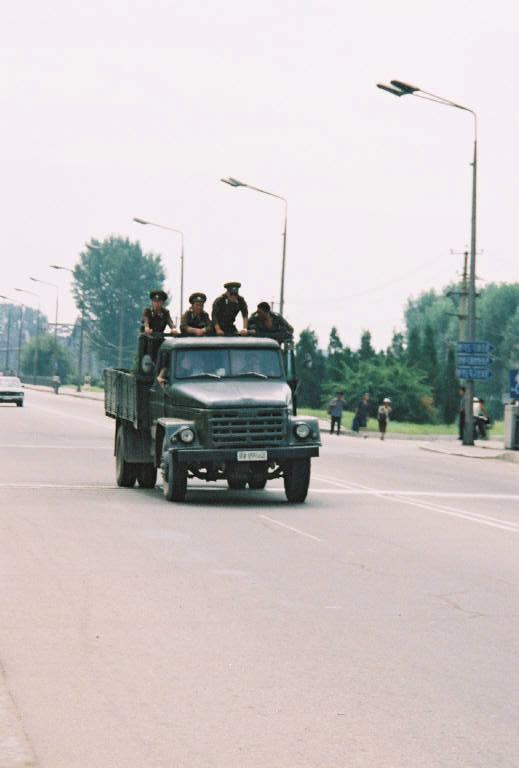
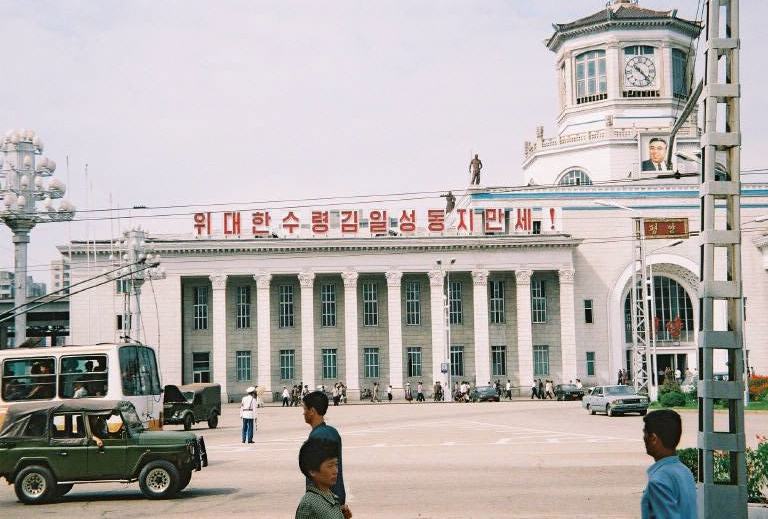
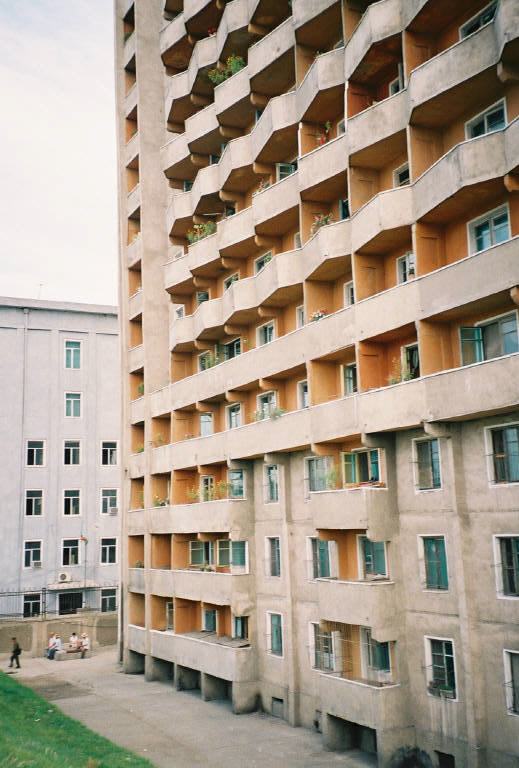
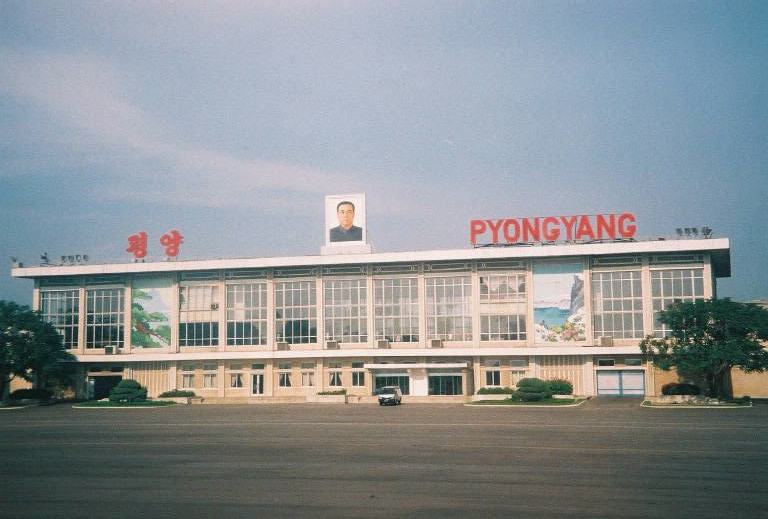
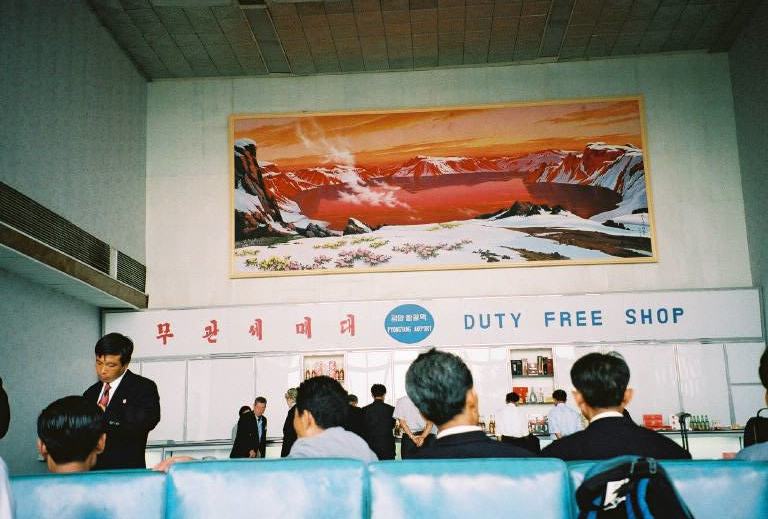
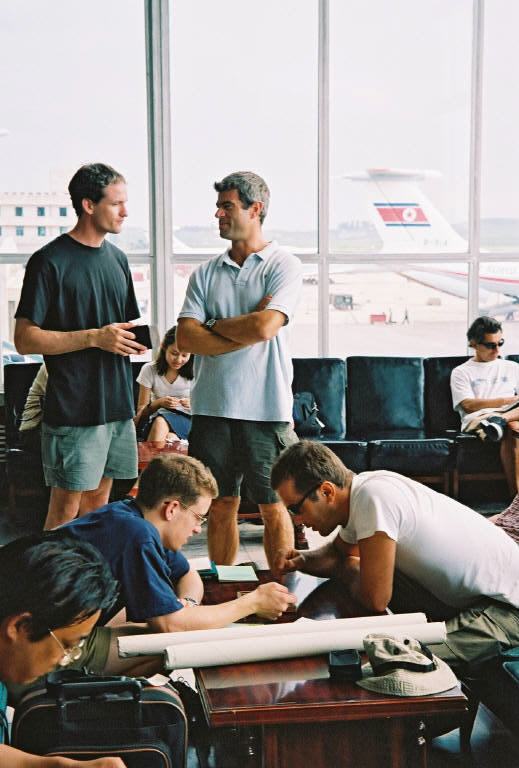

Ryan, thank you for taking the time to bring back and share your story from N. Korea. It certainly wrenches the emotions to read, especially to try to imagine what living like that would be like for any extended period.
Thanks Brian! The DPRK has been in the news a lot lately. Seemed like a good time to share these stories, and to remind everyone that while the government is a bunch of manipulative lunatics, there are real people living there too, caught in something they can’t control.
Thanks for sharing, Ryan. I thoroughly enjoyed reading this.
Thanks Colin!
Totally enjoyed reading these, Ryan! Your travels are extraordinary. Keep the posts coming!
Thanks Keith!